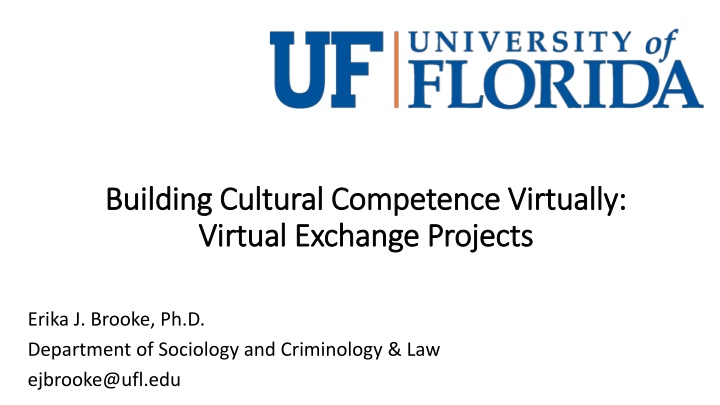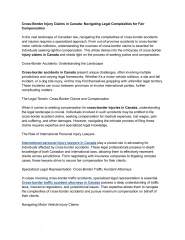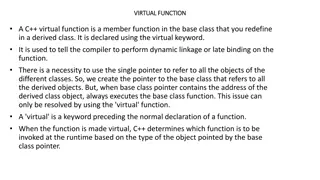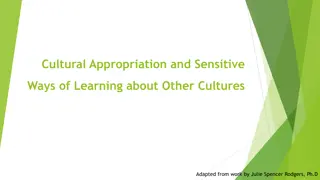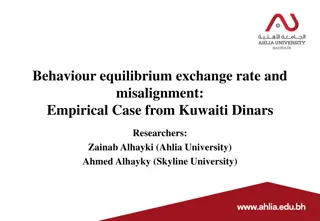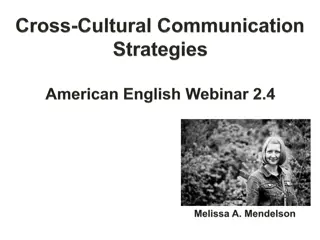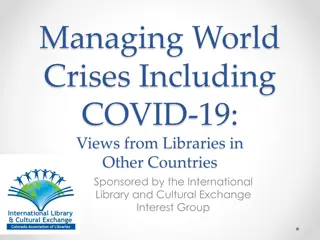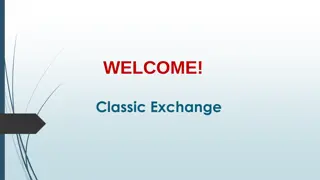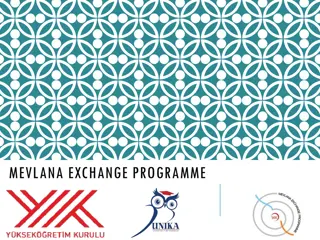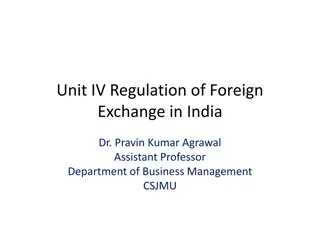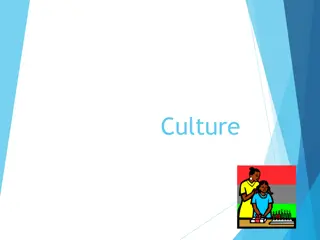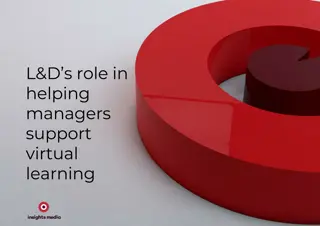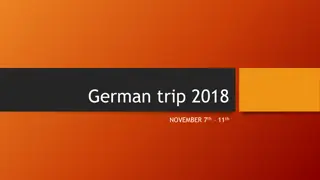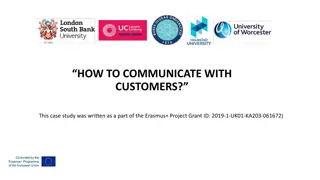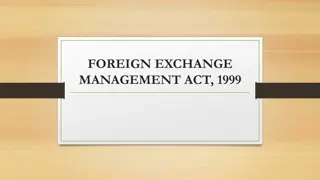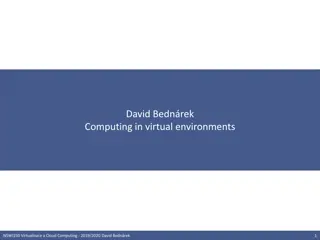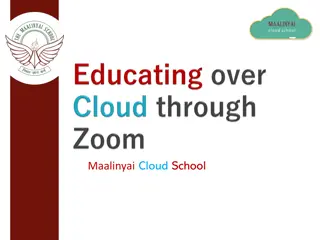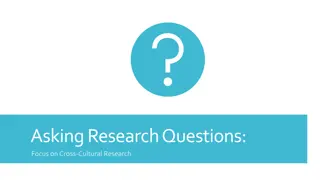Virtual Exchange for Cross-Cultural Learning
In a virtual exchange project between students in the US and Ecuador, participants engaged in comparative discussions on justice system operations, fostering cross-cultural understanding and professional development skills through interactive sessions and reflection activities.
Uploaded on Mar 13, 2025 | 1 Views
Download Presentation

Please find below an Image/Link to download the presentation.
The content on the website is provided AS IS for your information and personal use only. It may not be sold, licensed, or shared on other websites without obtaining consent from the author.If you encounter any issues during the download, it is possible that the publisher has removed the file from their server.
You are allowed to download the files provided on this website for personal or commercial use, subject to the condition that they are used lawfully. All files are the property of their respective owners.
The content on the website is provided AS IS for your information and personal use only. It may not be sold, licensed, or shared on other websites without obtaining consent from the author.
E N D
Presentation Transcript
Building Cultural Competence Virtually: Building Cultural Competence Virtually: Virtual Exchange Projects Virtual Exchange Projects Erika J. Brooke, Ph.D. Department of Sociology and Criminology & Law ejbrooke@ufl.edu
What is Internationalizing Education? What is Internationalizing Education?
What is Virtual Exchange? What is Virtual Exchange? A technology-enabled instructional strategy that allows for people to interact and communicate across the globe. A global collaboration to assist students with building cultural competence A student-centered experiential learning opportunity that offers reinforcement in and reflection on course material through a cross cultural lens A pedological tool that could be applied to any subject Virtual Exchange comes in various shapes and size (e.g., various forms)
Dimensions of Virtual Exchange Dimensions of Virtual Exchange Virtual guest speakers (synchronous or asynchronous) Class-to-class interaction(s) among students (synchronous or asynchronous) Team-taught course between faculty at two different institutions Can be classes in the same discipline or in different areas
Virtual Exchange Summary: Virtual Exchange Summary: Comparative Perspectives on Justice System Operations Comparative Perspectives on Justice System Operations This virtual exchange project was an interactive collaboration between undergraduate students at UF and Universidad San Francisco de Quito (USFQ) in Ecuador. Separately, UF students learned about professions connected to the justice system, skills required, individual biases, and developed professional materials. USFQ students studied criminal law and procedure in the Ecuadorian justice system. Discussions were completed outside of class time using Zoom for six collaborative sessions over the semester. In the sessions, students discussed a variety of topics including cultural differences and similarities, and justice system operations (e.g., police, courts, corrections). UF students also completed post-discussion reflection videos via Flipgrid.
Virtual Exchange Activities Virtual Exchange Activities Assessments and Tasks: For UF students 6 discussions and 1 video individual reflection video and two peer responses per discussion. Plan for scaffolding: Guest speaker (e.g., learn about the profession) Discussion topic introduced (based on the profession/guest speaker talk/readings for the week) & discuss it with international partner Post individual video reflection and two peer responses based on the conversations with international peers.
VE VE Sample Discussion Assignments Sample Discussion Assignments VE#1 week on Jan 25th post an introduction video message to your discussion group via Flipgrid (deadline to post the introduction video is Sunday, Jan 31st at 11:59pm) Instructions for Flipgrid (https://help.flipgrid.com/hc/en-us/articles/360044723514-How-to-record-and- submit-a-video) : 1. Open the Flipgrid course site at https://flipgrid.com/careersspring2021. 2. Open the discussion board at https://flipgrid.com/69c499bb 3. Scroll down to the bottom of the page and select the green + sign to create a Flipgrid video 4. Record your introduction video 5. Record video responses to your assigned discussion group members. Instructions: For the introduction video, record a brief presentation introducing yourself to the class (1-2 minutes). In this introduction video, you should discuss your major and year, your future career plans (as of now), and three fun facts about yourself. Be sure to also mention what you hope to learn during this virtual exchange project. After posting your video, comment on international partner(s)' videos.
Week of Feb 1st Schedule your first discussion meeting (Ideally, you should complete your group meeting by Friday, Feb 5th at 11:59pm) Topic: Views on Criminal Law Discussion Questions: How do you define crime? How is crime defined the around the world? What is your view on the criminal justice system in your country regarding fairness and equality? This week, you discussed your views on criminal law with your VE group. You also read about nurturing bias in the Eberhardt (2020) book. For this video, record a brief reflection on the VE discussion, Eberhardt (2020) readings and course topics (3-5 minutes). Specifically, you address the following: 1. Did the VE discussion change your previous views on the discussion questions (give a couple of examples)? 2. What did you find the most surprising from your international partner(s) during the discussion? 3. Are we all vulnerable to bias? (Eberhardt Introduction) 4. To what extent is our identity shaped by how others categorize, stereotype, and view us? How much control do we really have over how we are seen? (Eberhardt Chapter 2) After posting your video, comment on two of your classmates videos from different discussion groups.
Why a Virtual Exchange? Why a Virtual Exchange? Moves beyond an exclusively residential collaboration platform to allow collaboration with people around the world on a common interest/topic Economical (for students and faculty) Accessible to all students Flexible (can occur outside of class time/any topic) Professional development (for students and faculty) Gain cultural insights and perspectives on topics that cannot be taught in the classroom Offers additional reflection and/or skill building on course content Enhance career readiness
Key Principles of Virtual Exchange Key Principles of Virtual Exchange Do not underestimate the complexity of virtual exchange projects (e.g., logistics) Individual set-up (e.g., differences in time zones, semester schedules, customs and courtesies, etc.) Partners are key Use campus resources or fellow colleagues to find a partner(s) Support for both faculty and students Having a Virtual Exchange (VE) plan set up prior to meeting partner; Take VE training at UF Focus on Outcomes Using multiple low stakes assignments; inflate the number of group members to account for attrition Other considerations (e.g., post-pandemic, other activity options) Various levels of engagement and assignment expectations among institutions (All adapted from NAFSA.org).
Cultural Competence: Pre/Post Cultural Competence: Pre/Post- -VE VE International Critical Thinking (IntCRIT) & International Communication (IntCOMM) Attitudes and Beliefs Survey (26 items) Significant items: 10. I can contrast important aspects of different cultures with my own. (p = .051) 18. I feel comfortable in conversations that may involve cultural differences. (p = .043) 19. When working on a group project, I enjoy collaborating with students from other countries. (p = .025) 26. I can clearly articulate my point of view to members of other cultures. (p = .049)
Student Panel Student Panel How will you use your experiences from the virtual exchange in the post- graduation world and workforce? What insights have you gained about another culture through your discussions? Were there any barriers (or drawbacks) to your Virtual Exchange experience? What did you find the most impactful about the Virtual Exchange project? What advice/recommendations do you have for professors who want to incorporate a Virtual Exchange project into their course? (think assignments, topics, cultural awareness, etc.)
Activity Activity
Activity Activity Brainstorm First, brainstorm how you could incorporate a virtual exchange project in a course Share Next, share your idea with your group for feedback. Develop Draft Plan Lastly, develop a collective virtual exchange project that you will pitch to the student panel for feedback
VE Training Opportunity VE Training Opportunity LEARN TO DESIGN AN INTERNATIONAL VIRTUAL EXCHANGE Through virtual exchange, faculty can connect their UF classes with students and faculty abroad to collaborate on assignments, acquire global perspectives on a given discipline, and develop intercultural competence skills. This online training program offered through the UF International Center helps faculty design and incorporate virtual international content and communication activities into existing courses. Program Dates: October 4th - November 5th, 2021 Application Deadline: Friday, May 7th, 2021 This training is open to all UF faculty and staff with educational responsibilities. Upon completion, participants will receive a $500 award as professional development funds (budgetary approval pending) and 500 miles towards the Global Teaching and Learning Certificate and Passport to Great Teaching. To learn more about the training and to apply, click here. Faculty are also invited to attend an upcoming info session to learn more about this program: Tuesday, April 20th 11:00am-12:00pm - Register If you have any questions, please contact Paloma Rodriguez (prodriguez@ufic.ufl.edu).
Questions? Questions? Erika J. Brooke, Ph.D. Department of Sociology and Criminology & Law ejbrooke@ufl.edu
